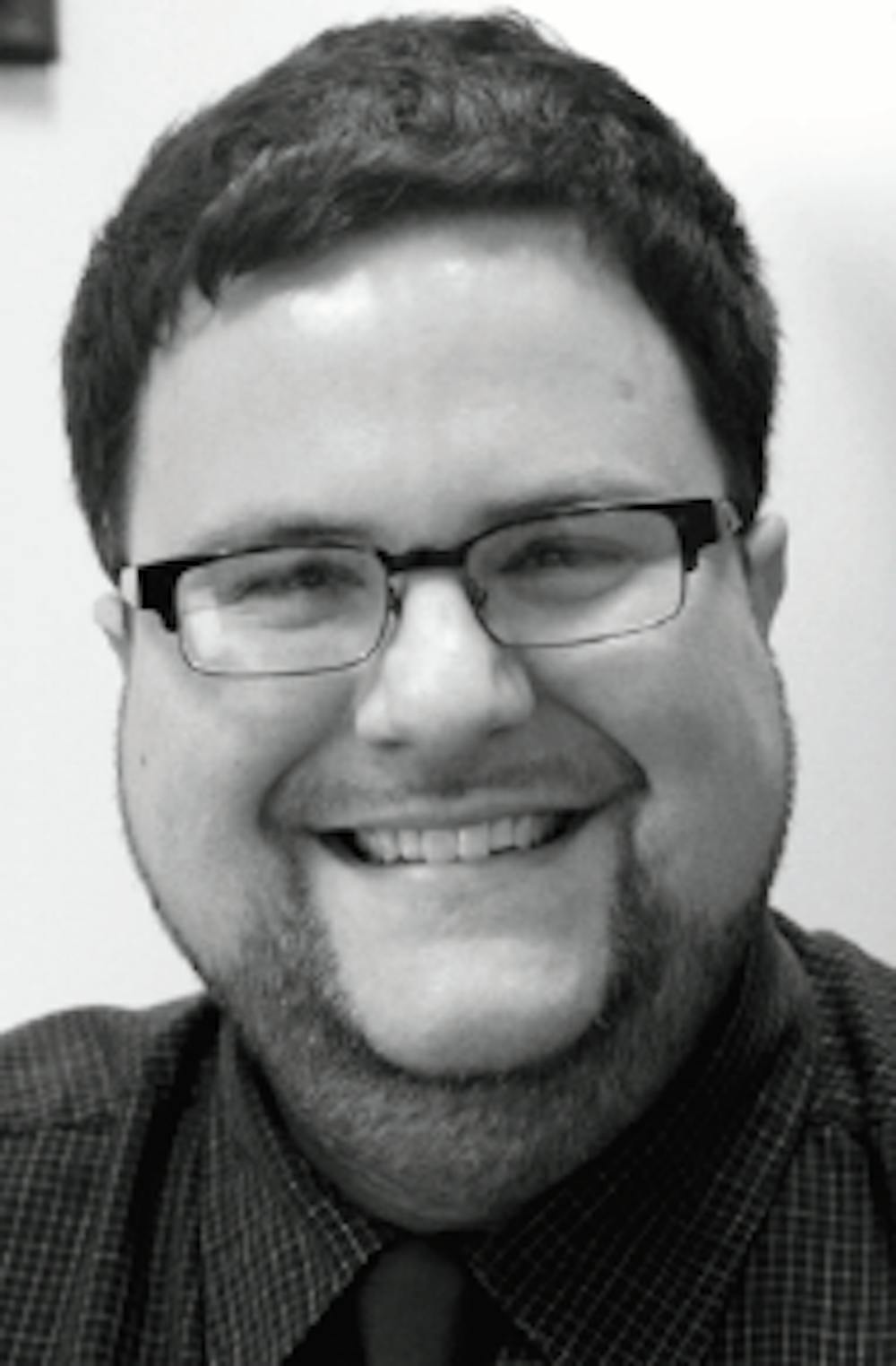Ross Wade went for more than a decade living a lie in front of his family.
Now, coordinating content for the QueErLON blog, which falls under the umbrella of Elon’s new LGBTQ office led by Kirstin Ringelberg, Wade is encouraging others to share their personal experiences as a member of the LGBTQ community or its allies.
In his inaugural post, published in October, Wade outlined his personal experience growing up in a conservative, religious family and pretending to be straight for years before eventually coming out to his mother while in college.
“The thing about being gay and keeping secrets from your family is that you deny them the chance of loving you for who you are and being your ally,” he wrote in the post. “For years, I distanced myself from family, because I didn’t want to get close and then have them abandon me. What I didn’t realize is that they felt abandoned. They wondered why I didn’t love them. I did love them, I was just too scared to let them really see me.”
Last week, the blog officially launched when a link was sent to students, faculty and staff – within two days, it had 800 hits. Posts range from the experiences of Michelle Jones, assistant director of career services for arts and sciences, as an ally of the LGBTQ community to video blogs from junior Lauren Clapp and senior Jess McDonald, who recently attended the National Gay and Lesbian Task Force.
It was the first time Wade told his story through such a large and open medium, which he said didn’t quite hit him until he began receiving feedback from faculty and staff.
“I realized ‘wow, a lot of people read this’ and it started to occur to me,” he said. “It’s worth it. Someone had to post first and I felt since I was asking people to do it, then it should be me.”
But not all have found it so easy to post their experiences and thoughts on the blog, Wade said.
“I think they thought it would be easy, but they’re processing it, thinking ‘why am I an ally?’ ‘what does that mean to me?’ or ‘what is the story that I want to share about being queer at Elon?’ or ‘how do I think Elon can be better?’” Wade said. “It was really difficult for them, not in an ‘I don’t want to do this’ way but more in the way of ‘this is a complex, multi-layered question and so how am I going to address it?’”
Wade is hoping for not only personal posts, but presentation of research and other recommendations for improving inclusion of the LGBTQ community.
“It’s hard to understand a cause without understanding the people and their stories,” Wade said. “Once you can see past the label or stereotype or cause and see the person, then it’s meaningful to you.”
This personal principal has manifested in Wade’s life in ways he did not expect. His conservative Christian upbringing often led him to assume that all Christians are automatically against rights for LGBTQ individuals.
“Based on some of the feedback I’ve gotten from faculty, students and staff — they’re Christians but they’re also pro-equality and I’m just like ‘I’m a hater myself and I need to stop that,’” Wade said, referring to his own tendency to stereotype. “You have all of those experiences, whether real or not, and they become a part of how you think. And it’s been a great learning opportunity for me to get myself straight about how I need to be more inclusive myself when it comes to religion.”
[box]The State of Inclusivity at Elon University
Last fall, Elon established a LGBTQ office under the direction of Kirstin Ringelberg, associate professor of art history. Without a physical space on campus, Wade said he hopes to see continued increase in the amount of support and resources for the community. Sophomore Kevin Moore, president of SPECTRUM, said he hopes his organization becomes a safe haven for all students, even those still coming to terms with their identity.
"It's not an organization you have to be 'out' in," he said. "Just because it's a gay-straight alliance doesn't mean you can't be in it because you don't know exactly what you are yet."[/box]


